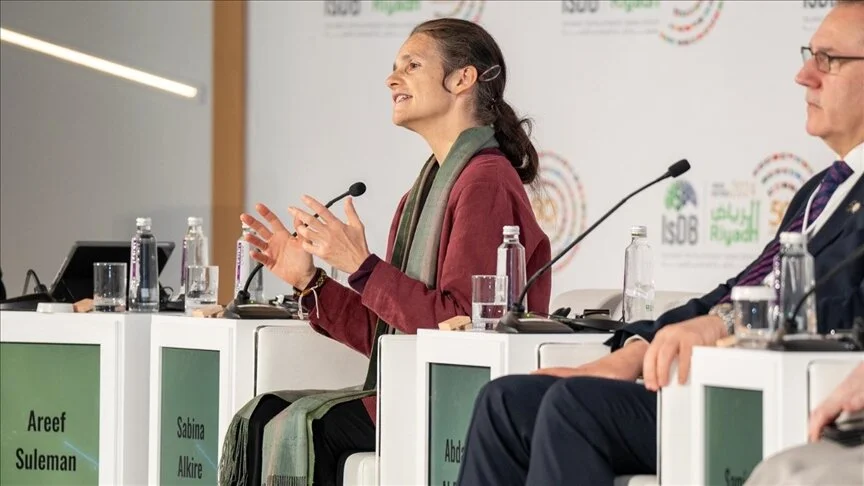

By Anadolu Agency
RIYADH
Saying that the world needs up to date data to see and keep responding to the poorest places, the director of Oxford Poverty and Human Development Initiative, said: “We do not have updated data. We have data from billionaires every hour on the Forbes website. But in the poorest country we have data on acute poverty more than 12 years ago.”
Speaking at the Islamic Development Bank (IsDB) Group’s annual meeting and golden jubilee event in the Saudi capital of Riyadh, Sabina Alkire said Saturday that the UN Development Program dropped Burkina Faso from the global multidimensional poverty index (MPI) last year because its data waa too old — 2011. Somalia was also dropped for the same reason.
She said the MPI covers 42 member countries of the IsDB, where around 1.6 billion people live and 28% of them are poor.
Across member countries, poverty ranges, from very small in places like Turkmenistan and Kazakhstan, to over 90% in some countries such as Burkina Faso or Mali, she explained.
There is a need for tailor-made policy tools for national development plans prioritizing those countries’ issues, such as employment or insecurity, she noted.
The poorest regions have much higher poverty than other regions and so they might need to be targeted, and many countries are targeted at the household level multidimensionally poor people so they know what services they need, what children need scholarships, what people lack access to health care, where there is a need for electricity and that can be tackled, she said, adding: “And so the value of the MPI is one to give an overview of the 464 million people who are in poverty, and how this has changed over time.”
The aim is not to measure poverty, reduce suffering, difficulties and disadvantages in so many poor people’s lives, she said.
Positive developments
“But to turn to some of the positive stories. We cover trends over time for 39 member countries. And the fastest reduction was in Sierra Leone, in Togo, in Mali, in Grenada, in Bangladesh, so a number of member countries had fantastic reductions,” she said.
For example, Sierra Leone from 2013 to 2017, reduced poverty from 74% to 58%, the fastest of any country, she said, adding that the success was achieved during the Ebola crisis.
“Everyone says it was messy, mistakes were made, but for the very basic depravations that touched poor people’s lives, there was still significant historic progress,” she noted.
Bangladesh also reduced poverty from 38% to 24% in five years, 19 million people left poverty, she said.
“There are also countries where there was not a significant change from Burkina Faso to bending, and those are difficulties and the state of Palestine as well,” she added.
We use cookies on our website to give you a better experience, improve performance, and for analytics. For more information, please see our Cookie Policy By clicking “Accept” you agree to our use of cookies.
Read More